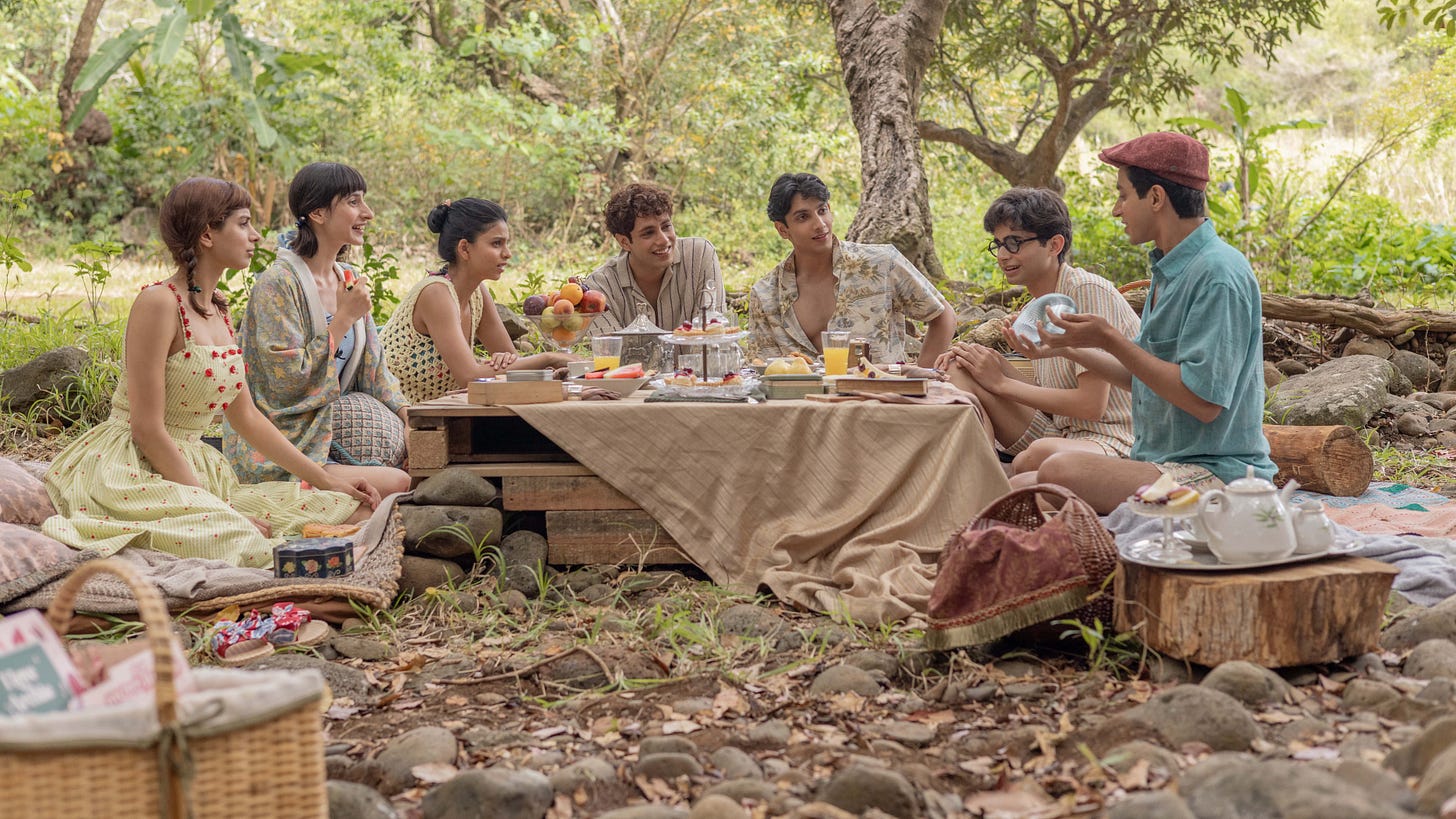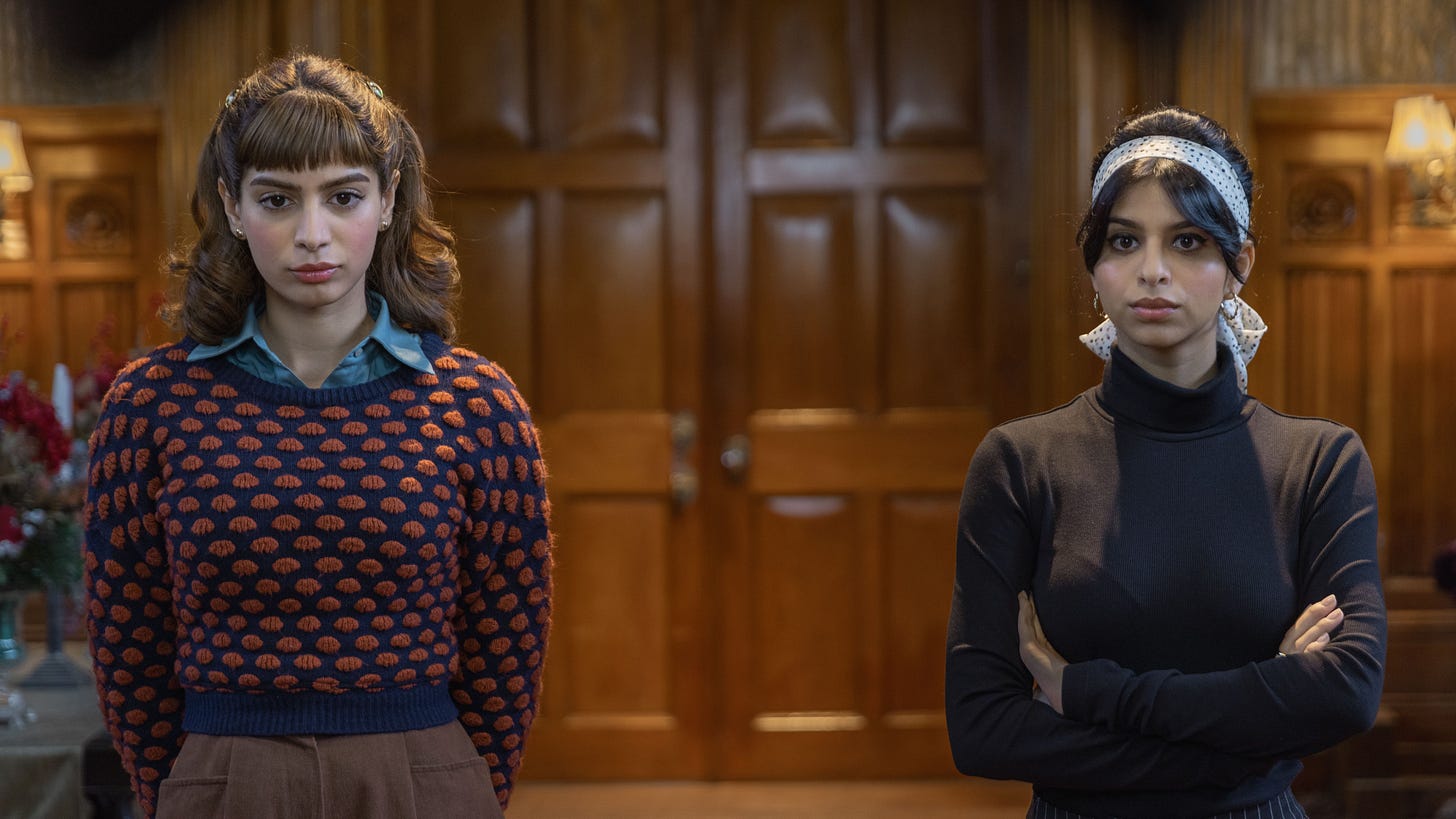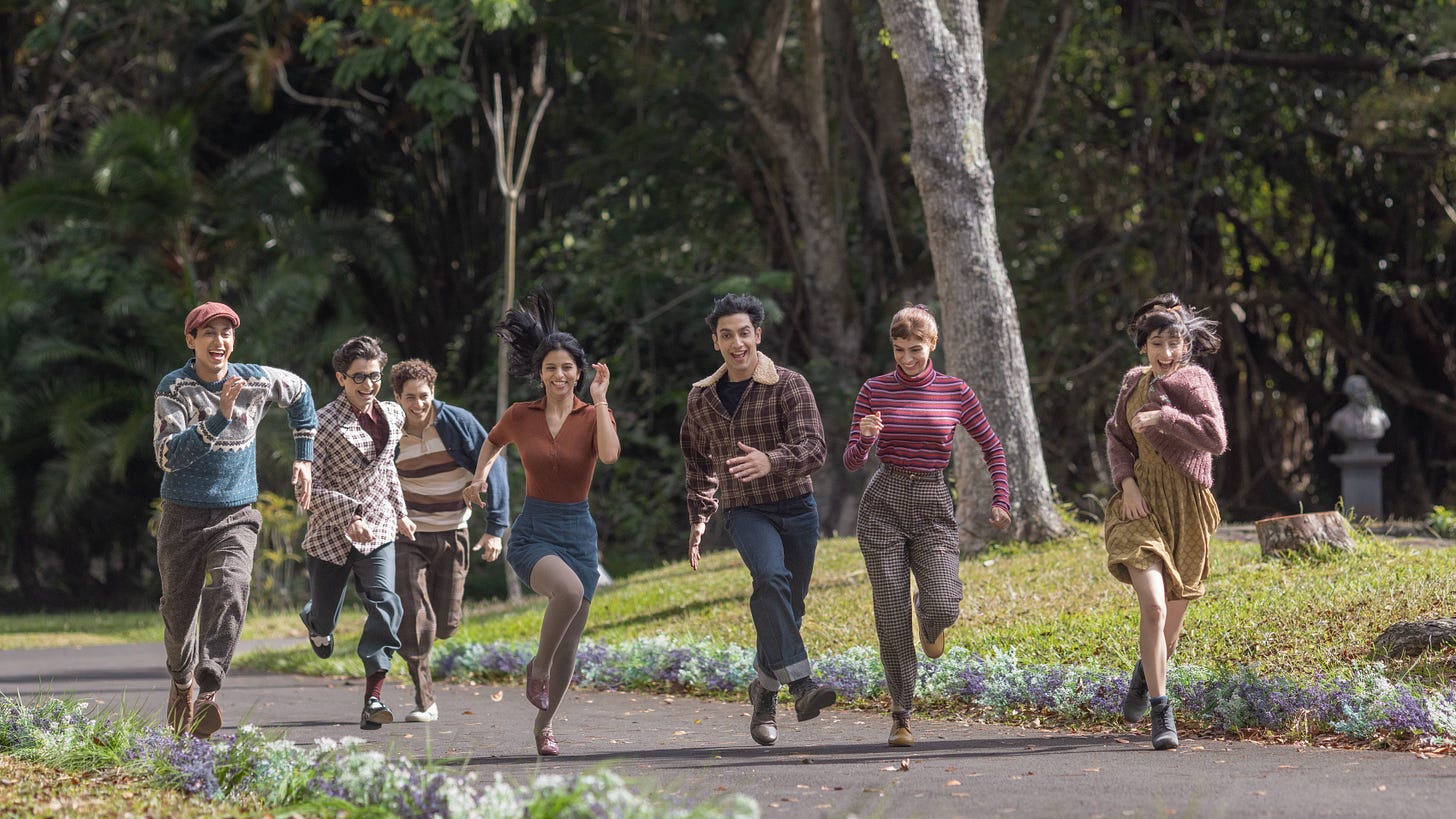Zoya Akhtar & Reema Kagti Talk All Things Archies | Renegades
Lifelong fans spinning a South Asian twist on the Archies franchise
Welcome to Renegades, a series spotlighting Asian Pacific leaders and creatives who are carving their own paths and defying stereotypes along the way.
This week, we sat with filmmakers Zoya Akhtar and Reema Kagti, discussing their latest film, The Archies, a South Asian adaptation of the classic comics, now streaming on Netflix.
Zoya and Reema, the Archies is a beloved and iconic franchise. How true does your version of the Archies stay to the original source material? And what creative liberties did you take to make it your own?
Zoya: The first thing was we had to take it and set it in India, instead of it being American and Anglo-fied, Anglo-Indian-fied. Because we are both huge Archie fans and readers, it meant a lot to us. We grew up in an India that wasn't liberalized, and therefore Archie was one of the few things that was American and accessible to us.
We wanted to retain the innocence of the comics of that time: the idealism, the wholesomeness, the community life, the friendship, the innocent romances. We wanted to do that nostalgia. We wanted that nostalgia that we fell for, and our generation fell for. We definitely wanted to keep that.
We took creative liberty in the adaptation. Of course, when you take something that's episodic in nature and two pages and you have to create a two-hour screenplay, you need the characters to be rooted in a particular way to create the story. So that was the creative liberty we took as to what Archie's father does, what Reggie's father does, who they are, Ethel's hairdresser, etc.
Reema: The comics, they're episodic, like skits. Sometimes the characters are very one-dimensional. So when you're writing a film, you have to round your characters.
Z: Yeah. So we rounded them. We also knew that … there was a generation that's going to watch it that doesn't know maybe anything about the comic or the comic history. So we had to take things that are relevant and resonate with kids today. Thematically what works for them, what moves them, and use that in the film. We also had to look at a certain angle through the lens of today, like the Archie Betty Veronica triangle.
Music and fashion play an important role in this film and have received much attention thus far. Can you tell us how you approached these elements and their significance in this film?
Z: We knew we wanted to do a musical with this, because we are from the Indian film industry, and we use music as part of our film grammar, as part of our film language. With Archie coming to us and the first film being made out of India, I think it was nice to keep our syntax, to do a mix of what works here and what works there.
I work with Ankur Tewari. He is a writer and a musician himself, so it's very interesting to have him as a music supervisor because he understands story, and he understands what the song here needs to say, what it needs to sound like, and what it does to the tone at that moment in the film.
We created an album, which was really fun, working with Shankar–Ehsaan–Loy, working with my father, [Aditi "Dot" Saigal] who's a new upcoming musician, and the Islanders. There were a few people that worked on the album, and it was really nice to do something that's not happening right now in the scene.
Diving into the themes, while we can readily identify themes of friendship, relationships, and the environment, are there any hidden layers or complexities that may not be immediately apparent but become evident when we watch the film? What message were you aiming to convey to the audience through these themes?
R: I think the main message was you're never too young to change the world.
Z: I was very fortunate to grow up in a house and an environment where, even as a kid, my opinion mattered. What I said mattered, what I felt mattered, what I thought about something mattered. And it was heard. Sometimes argued, sometimes validated, but always heard.
I've grown up with the belief that we need to listen to kids. We need to listen to the youth. Coming-of-age is a theme that I keep going back to. They’re 17 in the film, and it's a time when you assert your identity, and you put out what kind of world you want to live in. And that was an important thing for me.
I also think the Betty-Veronica story and narrative are important for me. I think girls sticking up for each other is important to me.
This film is just layered with things that we believe and we want to believe. What would an ideal world be like? Because that's what Archie Comics meant to me.
R: Yeah, the attempt really was to celebrate what we love about the comics, about reading Archie Comics when we grew up.
How did you navigate and manage reactions and feedback regarding the casting of the film?
Z: As we've been promoting the film and connecting with audiences, we've received a lot of love and positivity. There's a genuine interest in the project, and it's been heartening to see the growing excitement as we approach the release date. I believe we can react to it once the film is out, when it finds its audience or doesn't. That's when we can have this conversation. Right now, it feels a bit early, in my opinion.
R: And right now, nobody’s seen the film, so a lot of it is just noise.
Before we get into the Lightning Round, is there anything that else you want the readers to know about the film?
Z: It's a very simple film. It's a film about a time gone by that you wish you could dip into. It's a film about “maybe less is more”. This “bigger, better, faster” culture: we've lost some values.
R: One of the most amazing things about this partnership with Netflix is the fact that, though it’s made in India, we think it’s a universal film. Because the IP is universal, and it's dubbed in many languages. And we hope that will speak to a much wider audience.
Lightning Round
Most productive time of the day.
Z: Morning.
R: Morning.
A writing tip.
Z: Don't wait for the muse. It's not coming. Sit at the laptop, and sit there every day and it'll happen.
R: And, you know, it never happened to us. You're not happy with your first job. Just keep at it and keep layering.
Z: You can't write without discipline.
R: And don't attempt to screenplay without having some kind of story beats. You can get very lost.
Archies character you identify with the most?
Z: I keep saying it changes, and it does. But today’s is Veronica,
R: For me, it was Jughead and his mutual love of food. I’m older and growing out of metabolism. It's not magic. Jughead doesn't put on weight, and I do.
A fashion trend from the sixties you wish would make a comeback?
Z: I think they're all coming back anyway. Some of them haven't gone, but roller skates. Roller skates, I love, and I love bell bottoms.
R: I don't know: my preferred things are shorts and T-shirts. I shouldn't be really answering the fashion question.
Favorite memory while filming?
Z: Oh god, there's so many. But I think for me, it was being in Ooty, which is a hill station in South India, where we filmed mainly and working 13 hour days and not feeling the fatigue because you're just in nature.
It's a big collective memory for me. You just feel very earthed. Living in cities, we've kind of forgotten that. And that is my memory. Like, I want to go back to the hills. I want to go back to the trees. That stayed with me.
R: For me, I think that, you know, it was because of COVID and you know, a lot of other things. It was a difficult shoot. Like Zoya said, there are many memories. But I think when we wrapped and we finally got everything and [Zoya] got everything in the way that she wanted to, I did feel a sense of relief, at least for the shooting process.
Will there be a sequel?
Z: I mean, that would be lovely if there was. But let’s see how this one goes!






